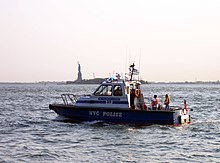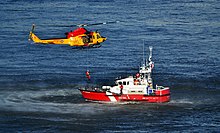
A coast guard or coastguard is a maritime security organization of a particular country. The term embraces wide range of responsibilities in different countries, from being a heavily armed military force with customs and security duties to being a volunteer organization tasked with search and rescue without law enforcement authority. In most countries, a typical coast guard's functions are distinct from those of the navy and the transit police, while in certain countries they have similarities to both.
A state bureau of investigation (SBI) is a state-level detective agency in the United States. They are plainclothes agencies which usually investigate both criminal and civil cases involving the state and/or multiple jurisdictions. They also typically provide technical support to local agencies in the form of laboratory and/or record services, or to directly assist in the investigation of cases at the local agency's request.
Responsibilities for traditional coast guard duties in Australia are distributed across various federal, state and community agencies. The de facto coast guard of Australia is the Maritime Border Command, a joint command of the Australian Defence Force and the Australian Border Force which works alongside the Australian Federal Police, the Australian Fisheries Management Authority, and the Australian Maritime Safety Authority. Each state and territory government have specific maritime safety agencies and police marine units. In addition, there are several private volunteer coast guard organisations which act as auxiliary search and rescue services and maritime safety educators with the largest organisations being the Royal Volunteer Coastal Patrol established in 1937, the Australian Volunteer Coast Guard established in 1961, and Marine Rescue New South Wales established in 2009.

The Philippine Coast Guard (PCG) is recognized as the third armed uniformed service of the country attached to the Philippines' Department of Transportation, tasked primarily with enforcing laws within Philippine waters, conducting maritime security operations, safeguarding life and property at sea, and protecting marine environment and resources; similar to coast guard units around the world. In case of a declaration of war, the Coast Guard shall also serve as an attached service of the Department of National Defense.
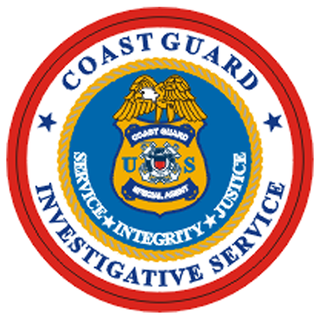
The Coast Guard Investigative Service (CGIS) is a division of the United States Coast Guard that investigates crimes where the U.S. Coast Guard has an interest. It is composed of civilian (GS-1811), active duty, reserve enlisted, and warrant officer special agents.

The Jacksonville Sheriff's Office (JSO) is a joint city-county law enforcement agency, which has primary responsibility for law enforcement, investigation, and corrections within the consolidated City of Jacksonville and Duval County, Florida, United States. Duval County includes the incorporated cities of Jacksonville, Atlantic Beach, Baldwin, Jacksonville Beach, and Neptune Beach; the beach cities have their own police departments as well.
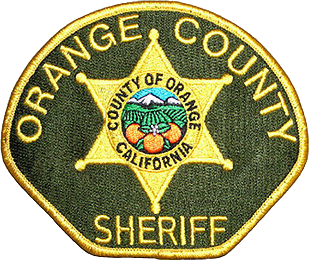
The Orange County Sheriff's Department (OCSD) is the law enforcement agency serving Orange County, California. It currently serves the unincorporated areas of Orange County and thirteen contract cities in the county: Aliso Viejo, Dana Point, Laguna Hills, Laguna Niguel, Laguna Woods, Lake Forest, Mission Viejo, Rancho Santa Margarita, San Clemente, San Juan Capistrano, Stanton, Villa Park, and Yorba Linda.
The United States Coast Guard is the coastal defense, search and rescue, and maritime law enforcement branch of the United States Armed Forces and is one of the country's eight uniformed services. It carries out three basic roles, which are further subdivided into eleven statutory missions. The three roles are:
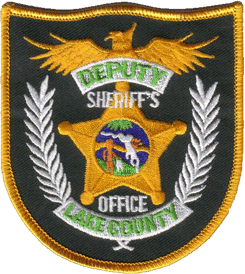
The Lake County Sheriff's Office is the largest law enforcement agency in Lake County, Florida, United States. Per the State of Florida Constitution, the sheriff is the chief law enforcement officer of both the incorporated and unincorporated areas of the county. The current Sheriff is U.S. Marine Corps veteran Peyton C. Grinnell who was elected November, 2016 in the Lake County general election. He succeeds Sheriff Gary Borders, who was appointed by Governor Jeb Bush following the death of Sheriff Chris Daniels in 2006, and was subsequently elected in 2008, and 2012. The agency has been awarded with a certificate of accreditation from the Commission for Florida Law Enforcement Accreditation, consequently, both the Law Enforcement and Corrections divisions of the Lake County Sheriff's Office are now accredited.

United States Naval Districts is a system created by the United States Navy to organize military facilities, numbered sequentially by geographic region, for the operational and administrative control of naval bases and shore commands in the United States and around the world. Established in 1903, naval districts became the foundational system for organizing U.S. naval forces ashore during the 20th century. The term "Naval" forces includes United States Marine Corps and current United States Coast Guard units.

A conservation officer is a law enforcement officer who protects wildlife and the environment. A conservation officer may also be referred to as an environmental technician/technologist, game warden, park ranger, forest watcher, forest guard, forester, gamekeeper, investigator, wildernessofficer, wildlifeofficer, or wildlife trooper.
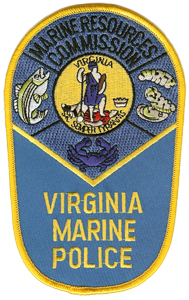
The Virginia Marine Police is the law enforcement division of the Virginia Marine Resources Commission, an agency of the Commonwealth of Virginia, United States.

In the United States, a sheriff is the chief of law enforcement of a county. Sheriffs are usually either elected by the populace or appointed by an elected body.

The Southold Town Police Department (STPD), commonly referred to as Southold Police, is the primary law enforcement agency within the town of Southold, New York. The Southold Police Department also operates an emergency service dispatch center, servicing two police departments and eight local fire departments.
Michigan Conservation Officers also known as Michigan DNR Law Enforcement Division are conservation officers who are the enforcement branch of the Michigan Department of Natural Resources. Their primary duty is to enforce the environmental laws in the State of Michigan. Michigan Conservation Officers are fully commissioned peace officers and are empowered to enforce all the laws of the State of Michigan.

In the United States, the state police is a police body unique to each U.S. state, having statewide authority to conduct law enforcement activities and criminal investigations. In general, state police officers or highway patrol officers, known as state troopers, perform functions that do not fall within the jurisdiction of a county’s sheriff, such as enforcing traffic laws on state highways and interstates, overseeing security of state capitol complexes, protecting governors, training new officers for local police forces too small to operate an academy and providing technological and scientific services. They also support local police and help to coordinate multi-jurisdictional task force activity in serious or complicated cases in states that grant full police powers statewide.

The Oakland County Sheriff's Office (OCSO) is the largest sheriff's department in the state of Michigan. The Sheriff's Office had 859 uniformed officers as of 2017, and has jurisdiction over all of Oakland County, with a population of 1.274 million as of the 2020 census. Roughly 343,000 residents of fifteen communities are served by the Sheriff's Office under contract.
